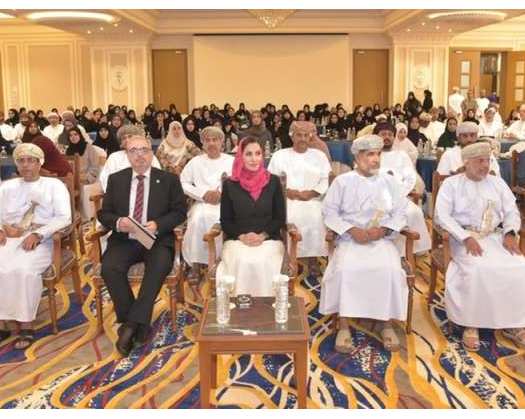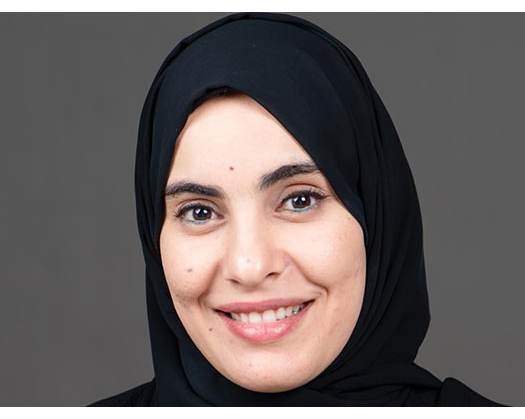Muscat: The Ministry of Health (MOH), in partnership with the World Health Organization, officially inaugurated the National Survey for Non-Communicable Diseases today, alongside preparations for the second phase and a training program for personnel involved in the National Health Survey at the Mercure Hotel in Muscat.
The ceremony was held under the patronage of HH Sayyida Dr. Mona Fahd Al Said, Assistant Vice Chancellor for International Cooperation at Sultan Qaboos University and Chair of the National Committee for the Prevention of Non-Communicable Diseases.
During the event, Dr. Ahmed Salem Al Mandhari, MOH Undersecretary for Planning and Health Regulation, delivered remarks emphasizing that the National Health Survey is designed to gather precise data on the prevalence of non-communicable diseases and their risk factors within the community. This initiative aims to enhance public health strategies and support evidence-based decision-making.
Dr. Al Mandhari noted that non-communicable diseases represent one of the most significant challenges to public health. He stated, “In Oman, these diseases account for 80% of deaths and impose an annual cost of approximately RO 1 billion, creating a considerable burden on the national economy. Each year, over 6,500 new diabetes cases are reported, more than 2,000 new cancer diagnoses occur, one in three individuals experiences high blood pressure, and 66% of the population is classified as overweight or obese. These statistics underscore a substantial and escalating health burden that adversely affects the population's healthy life expectancy, highlighting the urgent need for enhanced prevention, early detection, and effective treatment strategies.”
Al Mandhari emphasized that Oman Vision 2040 prioritizes health to establish a sustainable health system focused on prevention and the reduction of non-communicable disease burdens.
The representative elaborated that the Sultanate of Oman has enhanced its healthcare framework to tackle the challenges posed by various diseases. This has been achieved through the implementation of early screening initiatives for diabetes, hypertension, kidney failure, tobacco control measures, and the promotion of physical activity alongside healthy eating habits.
He further noted that the national survey plays a crucial role in gathering precise data regarding the risk factors linked to these diseases. Such information will empower policymakers, researchers, and healthcare practitioners to formulate effective strategies aimed at improving public health and decreasing morbidity and mortality rates.
Dr. Jan Jabbour, the WHO Representative in Oman, remarked that the prevalence of non-communicable diseases in Oman is on the rise, posing a significant challenge to the healthcare system and adversely affecting the overall health and well-being of the community.
He emphasized that tackling this escalating issue necessitates a thorough and comprehensive understanding of the risk factors that contribute to the proliferation of these diseases within our populations.
He stated, “The STEPS survey will concentrate on critical behavioral risk factors, including tobacco consumption, lack of physical activity, and poor dietary habits, as well as biological risk factors such as overweight, obesity, hypertension, and high blood sugar levels. By systematically and accurately gathering this data, we can develop a holistic understanding of health behaviors and the prevalent health conditions within society.”
The WHO Representative in Oman highlighted the significance of the survey, referencing the alarming findings from the 2017 STEPS survey, which indicated troubling trends in non-communicable disease risk factors. Notably, the prevalence of overweight and obesity (BMI ≥25) surged to 66%, marking an increase from 54% in 2008 to 67% in 2017. The obesity rate (BMI ≥30) alarmingly reached 35%, with women particularly affected, as their rate climbed to 41%. Additionally, the survey indicated that 39% of the population experiences physical inactivity.
He stressed that these current figures underscore the critical need for targeted initiatives aimed at promoting healthier lifestyles and mitigating risk factors linked to non-communicable diseases. The data gathered from the national survey will aid in the development and execution of evidence-based strategies tailored to the specific needs of the nation.
The initial phase of the national survey commenced on December 29, 2024, concentrating on updating household lists across various governorates in Oman to prepare for the random selection of participating households.
The second phase is set to begin next April and will extend for three months, during which field data will be gathered from the chosen households through health questionnaires and clinical assessments, including measurements of height and weight, blood pressure, and blood tests to evaluate sugar and cholesterol levels.
Following the launch ceremony, a comprehensive five-day training program will be implemented, involving 165 field teams from different governorates of Oman. This training aims to enhance the participants' capabilities in conducting the survey in accordance with the highest international standards, including a practical component where a pilot study will be carried out on a selected group of households prior to the commencement of the actual field survey.









